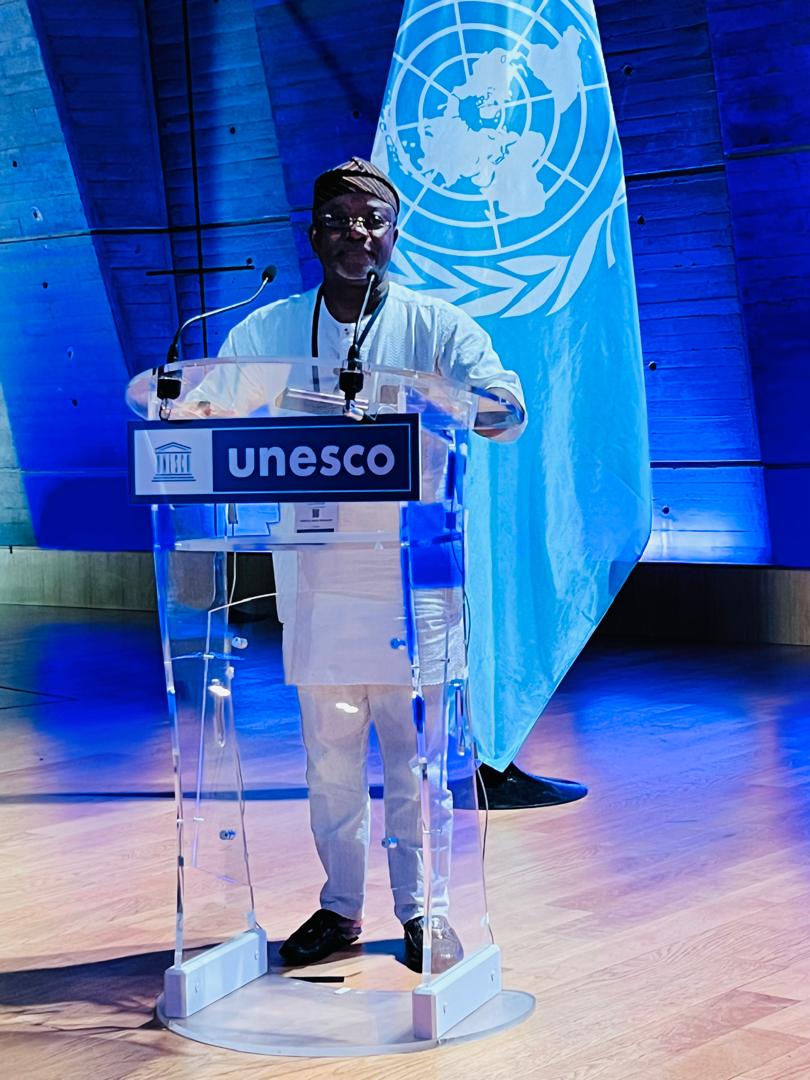The Executive Secretary/CEO of the National Institute for Cultural Orientation (NICO), Otunba Biodun Ajiboye has pushed for the inscription of Kano Durbar on the Representative List of Intangible Cultural Heritage of Humanity at the Intergovernmental meeting scheduled to take place later this year in Paraguay.
The move to further push for the inscription of Kano Durbar came at the 10th Session of the General Assembly of the States Parties to the Convention for the Safeguarding of Intangible Cultural Heritage, which held at the UNESCO headquarters in Paris, France from June 11 to 12, 2024.
This is not just a great part of deepening the global recognition of our culture, which has sincerely become a very important part of the new crusade of Federal Ministry of Art, Culture and the Creative Economy and the world in general, having realized that culture can foster global peace and harmony.
Otunba Ajiboye assures that Nigeria will benefit more from his strong, robust, and all-encompassing representation as a statutory participant at the Intergovernmental Committee meetings.
He expresses the importance of re-invigorating Nigeria’s participation in all aspects of the Convention, especially in the area of application for international assistance and the imperative of submitting more nomination dossiers, not only into the Representative List but into the Best Practices as well as the Urgent Safeguarding Lists.
He says the vibrant contributions from Nigeria at the just concluded session in Paris, earned the country a seat on the Committee as Nigeria is now elected as a member of the prestigious committee that will inscribe intangible cultural elements nominated by states parties for inscription on the United Nations Educational, Scientific and Cultural Organization (UNESCO)’s Representative List of Intangible Cultural Heritage of Humanity.
The meeting which had robust and meaningful deliberations, exchange of ideas as well as shared thoughts and insights into different aspects of the Convention through draft resolutions, amendments and interventions, identified the imbalance across geographical regions of accredited Non-Governmental Organizations (NGO)’s, which the Executive Secretary of NICO emphasized the need to register more from Africa and Nigeria in particular.
Fifty-Eight (58) NGO’s across the state parties were approved for accreditation at the meeting which include NGO’s from the United States of America; Croatia; Panama; Romania; Brazil; Morocco; Togo; Tunisia; and Italy among others.
Nigeria also participated actively in amending the rules of procedure, including Article 7.G.l which involves the programme or activity involving safeguarding as defined in Article 2.3 of the Convention, reflecting the principles and objectives of the Convention.
The amendment was extended to 7.2 which states that the programme, project, or activity has demonstrated effectiveness in contributing to the viability of the Intangible Cultural Heritage concerned. The amendment to the operational directives concerning the selection criteria for the register of the safeguarding lists was also adopted.
On international assistance under the Intangible Cultural Heritage Fund, it was agreed that eligible States Parties without inscribed elements on the Lists of the Convention should apply to the fund for assistance, bearing in mind that the next deadline of March 31, 2025.
Caleb Nor
Media Assistant to the Executive Secretary/CEO of NICO.

